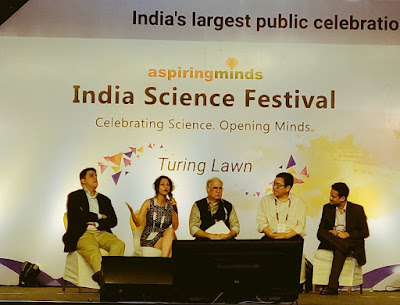New Publication Out: THE END OF THE ART CONNOISSEUR? EXPERTS AND KNOWLEDGE PRODUCTION IN THE VISUAL ARTS IN THE DIGITAL AGE
A joint paper with Filip Vermeylen is out in the Information, Communication and Society Journal. This is part of a larger research effort to understand the impact of digitalization and globalization on the art market as we compare the art worlds of Mumbai, Amsterdam and New York. While I bring the new media angle to this with a special focus on how emerging markets are capitalizing on virtual platforms to reinvent and structure themselves through strategic information indexing online, possibly creating new post-colonial art spaces, Filip is taking on a more economic and historical angle to see how these markets are shifting and decentralizing from the typical Western to a more Postmodern frame.
PAPER TITLE: THE END OF THE ART CONNOISSEUR? EXPERTS AND KNOWLEDGE PRODUCTION IN THE VISUAL ARTS IN THE DIGITAL AGE
(download PDF)
ABSTRACT: In this digital age, declarations surface of the death of the expert and the democratization of information. Crowd wisdom is seen as the new guide in constructing and evaluating knowledge. In the context of the art world, this tension between the amateurs and the experts becomes particularly pronounced as popular meets high culture. Questions arise such as: what is the role of the expert in the evaluation of art in contemporary times? Do social media dismantle age-old hierarchies and established priesthoods in the art world? And can we assume that mass participation in valuation results in better judgments? This article addresses such popular notions of participation and expertise concerning social media in the art world through a historical lens by re-examining and positioning art experts from past to present. Particularly, characteristics of intermediaries in the art market are examined closely regarding their strategies in knowledge production and the establishment of expertise. This historical situatedness enables us to move beyond the hype of new media expectations, generating more appropriate avenues of investigation to better grasp
possible changes amongst actors within the contemporary art world. This examination is not just theoretically relevant but practically so, given current pressures on art institutions to embrace and reach out to new audiences online.
PAPER TITLE: THE END OF THE ART CONNOISSEUR? EXPERTS AND KNOWLEDGE PRODUCTION IN THE VISUAL ARTS IN THE DIGITAL AGE
(download PDF)
ABSTRACT: In this digital age, declarations surface of the death of the expert and the democratization of information. Crowd wisdom is seen as the new guide in constructing and evaluating knowledge. In the context of the art world, this tension between the amateurs and the experts becomes particularly pronounced as popular meets high culture. Questions arise such as: what is the role of the expert in the evaluation of art in contemporary times? Do social media dismantle age-old hierarchies and established priesthoods in the art world? And can we assume that mass participation in valuation results in better judgments? This article addresses such popular notions of participation and expertise concerning social media in the art world through a historical lens by re-examining and positioning art experts from past to present. Particularly, characteristics of intermediaries in the art market are examined closely regarding their strategies in knowledge production and the establishment of expertise. This historical situatedness enables us to move beyond the hype of new media expectations, generating more appropriate avenues of investigation to better grasp
possible changes amongst actors within the contemporary art world. This examination is not just theoretically relevant but practically so, given current pressures on art institutions to embrace and reach out to new audiences online.




Comments
Post a Comment